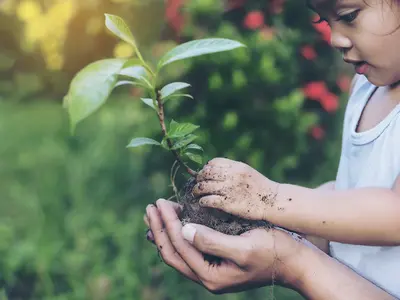CSR
Elis has embarked on a project to recycle its workwear
With a significant impact on the planet’s environmental footprint, textiles are a key issue in protecting the environment.
The Elis model is based on the circular economy, so we aspire to innovate and find solutions to give our textile products a second life.
The workwear recycling project
Over the years, many avenues have opened up around the world for the reuse of workwear as insulation material, artificial cellulose, and so on.
Elis wants to go further, providing its products with an ever more virtuous life cycle.
To achieve this, Elis France works in partnership with fibre manufacturers to experiment with how we can recycle used clothing into new clothing.
Our targets for 2025
-
80%
reuse or recycling of the Group’s end-of-life textiles
-
1 collection
At least 1 collection in each product range manufactured using sustainable materials
Find out about our sustainable approach
Did you know?
Flat linen (for example, sheets, towels, tablecloths) which by definition has a simple construction, has many benefits when it comes to being recycled or reused.
In fact, on this type of textile there are no accessories such as reflective strips or snap fasteners, nor any elements that make recycling complex such as sleeves or pockets.
This is not the case for workwear, which may consist of more than 10 materials and accessories that cannot be recycled (for example, reflective strips, zips, snap fasteners) and is more sophisticated in its construction with features such as elasticated trouser waists, making reuse and recycling more complex.
Our garment recycling process
In order to achieve this result, a chain of several partners is necessary. Indeed, numerous steps are involved in producing a new fabric of satisfactory quality to make new, hard-wearing clothing for the workplace.
-
Smoothing
After in-plant sorting comes the smoothing stage, which consists of removing all the garment’s accessories (buttons, zips, reflective strips)
-
Defibring and spinning
This step creates fibre from the fabric. From this fibre, a thread will be created that is then woven to make fabric
-
Weaving
At this stage the yarn is woven and the fabric goes through the finishing stage (mechanical or chemical operations in order to give characteristics to a product). Elis has decided not to bleach the fabric in order to limit the use of chemicals
-
Wash test
We perform multiple #wash and dry cycles in line with our plant’s maintenance processes to check the durability of fabric and accessories.
We also test for pilling and abrasion resistance, as well as colour fastness, to ensure that these new materials meet our quality requirements
At this stage, Elis is conducting several tests to assess this innovative solution and is working on the possibility of implementing it on a large scale, thus making a significant impact on the environment through better waste recovery, and by keeping it in use for as long as possible.
Elis also tries to limit the distances and transport involved in the workwear recycling process as much as possible in order to pursue a sustainable development approach.
These actions align with our targets for 2025 based on our CSR (corporate social responsibility) strategy.
Découvrez également
If you need information or a quote for your project, our teams are here to help. Contact us!
*Required fields
Account details



